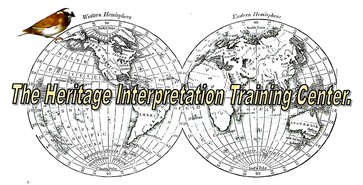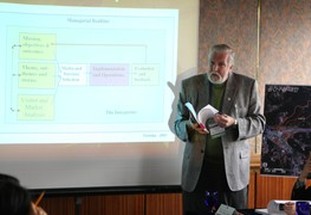John Veverka & Associates
Main menu
- Home Page
- Our Range of Services
- Separator 2
- Interpretive Coaching
- Interpretive Planning
- Interpretive Plan Outline
- Interpretive Training
- John Veverka Resume
- Qualifications
- NEW Advanced Interp. Text Book
- Separator 11
- InterpNEWS
- Separator 12
- Library
- Expert in Interpretation
- JVA NEWS, Courses and Updates
- Certificates
- Separator 47
- Planning/Design of Interpretive Panels
- Separator 48
- Interpretive Writing
- Separator 49
- Interpretive Writing Course
- Separator 50
- Interpretive Trails Course
- Separator 56
- Interpretive Panels Course
- Separator 55
- Introduction to Heritage Interpretation Course
- Separator 54
- Interpretive Planning & Design of Marketing Brochures Course
- Training for Interp. Trainers
- Separator 57
- Interpretive Exhibits Course
- Separator 58
- Interpretive Master Planning Course
- Separator 59
- Interpretive Planning for Scenic Byways.
- Critiquing and Coaching Interpretive Staff
- Separator 31
- Advanced Interpretive Planning
- Interpretive Training Center Course Catalogue
- Separator 32
- Interp. for International Visitors course.
- Separator 33
- Interpretive Exhibits Evaluation
- Separator 34
- Interp. Center Feasibility Analysis Course.
- Separator 35
- Interp. for Commercial Tour Providers
- Separator 36
- Interpretive Researchers Guide for Visitor Studies
- Separator 37
- Separator 13
- Interp. Planning for Historic Homes
- Separator 14
- Heritage Interpretation Training Center
- Interpretive Planning for Botanical Gardens
- Separator 15
- An introduction to planning and presenting live interpretive programs and tours for Museum/Heritage Site Docents and Volunteers.
- Developing Marketing Plans for Heritage & Tourism Sites and Attractions
- Separator 16
- Interpretation Book Store
- Separator 17
- Heritage Interpretation Resource Center
- Interpretive Planning for Historic Farms
- Developing Successful Partnerships
- Developing Interpretive Outreach Programs
- Community Interpretation Planning
- Interpreting Gravestones and Historic Cemeteries
- Using Interpretation to Accomplish Management Objectives.
- An Interpreters Guide for Survival Economics.
- Separator 18
- Innovative Strategies for Interpretive Media and Services Planning.
- Separator 19
- A Curators Guide for Developing Gallery Tours.
- Advanced Interpretive Writing - Technical Publications
- Page 2
- Advanced Interpretive Services for Managers, Supervisors, Team Leaders and Sr. Staff.
- Separator 20
- Advanced Interpretation for Chiefs of Interp. - Interpretive Managers - Regional Interp. Specialists
- Interpreting Critical Issues.
- Separator 21
- Developing Commercial Interpretation for Resorts, Cruise Ships, Campgrounds and Tourism Attractions.
- Separator 38
- Planning and developing a new commercial tour guiding business.
- Separator 39
- Interpretive Evaluation, Visitor Studies and Site Assessment Center
- Separator 40
- The Center for Interpretive Planning Advancement & Excellence.
- Developing Requests for Proposals (RFPs)
- Separator 41
- Planning and Facilitating Focus Workshops
- Separator 42
- InterpNEWS Advertising Details
- Planning for Interpretive Experiences
- 40 Years a Heritage Interpreter
- Separator 43
- Interpretive Techniques - The Rest of the Story Course
- Separator 44
- Certified Professional Interpretive Planner Certificate
- Certified Professional Interpretive Program
- Certified Professional Interpretive Trainer certificate program.
- Separator 53
- Certified Professional Heritage Interpreter certificate program.
- Separator 52
- Certified Professional Interpretive Writer certificate program.
- Visitor motives for attending interpretive programs.
- Separator 45
- Exhibit Rehab Course
- Separator 46
- Developing Training Workbooks & Manuals
- Separator 22
- Planning for Railroad Museums and Sites.
- Separator 51
- Climate Change Interpretation Course.
- Separator 23
- When there's nothing left but the story - interp. storytelling.
- Separator 24
- Interpreting Legends Myths and Fables
- Separator 25
- InterpSHARE - Seminars 2022
- Separator 26
- Interpreting Invasive Species
- Separator 27
- Interpretiing Edible Insects
- Separator 28
- Interpretaive Planning for Climate Change
- Separator 29
- HITC Climate Crisis Resource Center
- Separator 30
- Separator 5
- PUP Members Only
- Starting a new Interp Consulting Business
- Panels 4 Week Course
- Separator 8
- Interpretive Writing - 4 Week Course
- Marketing - 4 Week Course
- Separator 7
- Intro to Interpretation - 4 Week Course
- Separator 9
- Interp Climate Change - 4 Week Course
- Separator 10
- Exhibit Rehab 4-Week Course
- Separator 6
- Level 1
- Johns Interpreters Blog
- Separator 4
- Economics for Heritage Interpreters
Heritage Interpretation Training Center
Heritage Interpretation Training Center

Welcome to the Heritage Interpretation Training Center. This is our new project to help provide professional training in heritage interpretation - at a college level - for new to seasoned heritage interpreters. I was and am amazed that most colleges and universities that offer a major or minor in interpretation only have a few courses in interpretation to offer to their students. But a a true profession, there is so much to learn about what makes heritage interpretation such a dynamic profession. Where did heritage interpretation come from in the first place? If you look at the beginnings of interpretation, starting in 1954 with Freeman Tildens Book "Interpreting our Heritage", we can see that interpretive communication contains elements of:
* Marketing
* Advertising
* Journalism
* Recreational Learning Theory
* Consumer Behavior
* Speech
* Theater and Psychology of the Audience
* Non-verbal Communications
What we offer:
The HITC offers two venues for interpretive training.
1. Our live - on site- interpretive seminars and workshops presented for your staff, focusing on a specific interpretive training outcome. To learn more about our extensive live presented interpretive training courses, and logistic details, visist our web site page: http://www.heritageinterp.com/interpretive_training.html
Left to right: COE Training Course - introduction to interpretive services.
2. Our e-LIVE internet based interpretive training courses currently offer 18 different college level interpretive courses. What does e-LIVE mean? It means that while this is an internet based course - you still get a live interpretive instructor and coach to send your assignments to and to provide you with training support via SKYPE, e-mail or phone. All courses award CEU (Continuing Education Units) credits as well. With e-LIVE you can start the course anytime and work on the course you select at your own pace. Work on actual interpretive projects you may be working on at your site.
E-LIVE Course Catalog: http://www.heritageinterp.com/interpretive_training_center_course_catalogue_.html
About the Instructor: Prof. John Veverka
Interpretive training in Korea.
- B.S and M.S in Heritage Interpretation - The Ohio State University
- Ph.D. program in Interpretation at Michigan State University.
- Adjunct Professor Heritage Interpretation (summer heritage tourism institutes) North Carolina State University,
New York State University.
- NAI Certified Interpretive Planner and Trainer
- NAI Fellow
- Certified Professional Heritage Interpreter (Canada).
- Author of several interpretive planning/training college text books.
- Publisher of InterpNEWS - the International Heritage Interpretation e-Magazine.
- 40 years of interpretive planning, training and writing experience.
How does e-LIVE work?
Our e-LIVE courses are limited to 10 participants at one time, to allow for maximum interaction with the course instructor. Once one participant completes the course another participant can be added.
- You'll be given course content to read and interact with for each course unit.
- JVA will provide you with readings, text books and articles as part of the course.
- You'll be given a writing assignment for each unit which you will send to John for review, comments and writing coaching. You'll be able to talk with John about each assignment via SKYPE, or by e-mail or phone. Thus the e-LIVE opportunity. John will be your instructor and coach who you can talk with at any time about your assignments.
- When you've completed each course unit you'll be sent the next unit for the course. Again, you'll be given writing assignments for that unit to submit to John for review, comments and writing coaching.
- When you've completed the Units you will be awarded a certificate of completion and CEU (Continuing Education Unit) credits for that course.
Additionally, you can work on writing assignment for actual projects you may be working on - museum labels, marketing materials or other interpretive writing projects. That is the benefit of e-LIVE - we are flexible in designing the course to meet your real-world needs.
John A. Veverka
SKYPE: jvainterp
jvainterp@aol.com